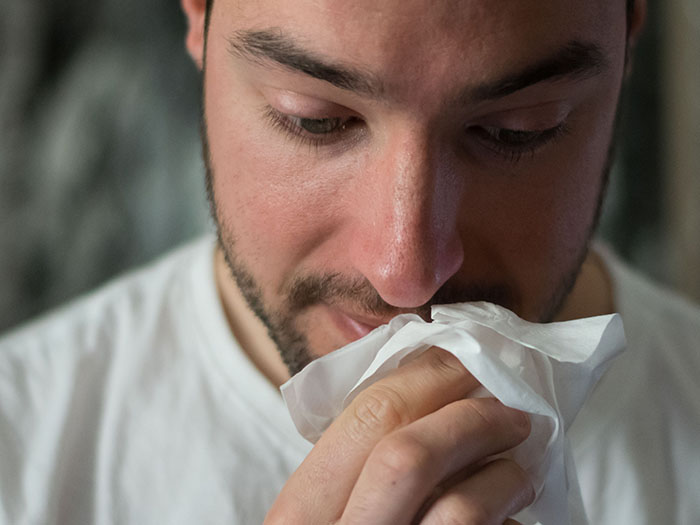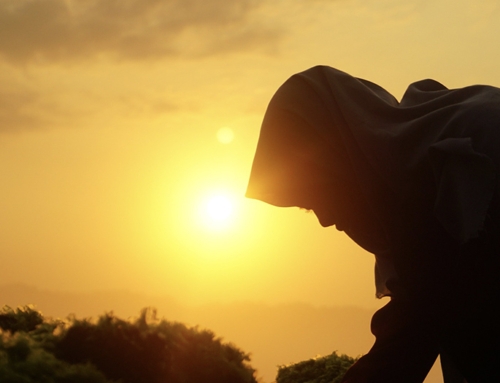By: Salma Omar
For a Muslim life is a means to an end, a path that to a final abode in heaven. This transient life is a realm where a people’s faith is put to test in various capacities including health. Islam considers health as a blessing and not a default state to which one is entitled. Accordingly, sickness is a normal part of life and holds great meaning as it presents a path for a believer to reconnect with one’s Lord; an opportunity to develop one’s faith.
The Purpose of Sickness
God created everything, including sickness and disease, with a purpose.
We did not create this heaven and earth and all that lies between them in vain. (Quran 38:27)
A prominent Muslim scholar named Ibn al-Qayyim once posited that God created what appears to be evil with a purpose, and through His wisdom, it ultimately transforms into something good.
Illness serves as a reminder of God and becomes a point for contemplation and self-examination before one’s eventual passing. A patient recognizes the fragility of life, ponders their imminent mortality, and contemplates the afterlife.
Verily, in the creation of the heavens and the earth, and in the alternation of night and day, there are indeed signs for men of understanding. Those who remember Allah (always, and in prayers) standing, sitting, and lying down on their sides, and think deeply about the creation of the heavens and the earth, (saying): Our Lord! You have not created (all) this without purpose, glory to You! (Exalted are You above all that they associate with You as partners). Give us salvation from the torment of the Fire” (Quran 3:190, 191)
Illness serves as a means for individuals to recognize the majesty of God and come to terms with their own vulnerability. When people experience an ailment caused by even the most minuscule microorganisms like bacteria or fungi, they can become incapacitated, disabled, and in some cases, face mortality.
In certain instances, even doctors and medical professionals possessing substantial knowledge, expertise, and access to advanced treatments can be afflicted by illnesses they cannot cure or save themselves from. Such situations can humble the wise as well as the arrogant, as both are compelled to acknowledge the might and grandeur of Allah.
And indeed, We sent [many messengers] to the people before you, and We made poverty and sickness strike them that they may be humble [to God and repent]. (Quran 6:42)
Sickness as a Test
Disease is also one of the ways in which God tests people.
“Who has created death and life that He may test you which of you is best in deed. And He is the All-Mighty, the Oft-Forgiving” (Quran 67:2).
Through the loss of health due to illness, an individual can come to recognize the grace of God upon them and, in turn, develop a deeper appreciation and gratitude for the blessing of good health.
A healthy person is expected to be grateful for the blessing and the sick ought to be patient; these two distinctive states are beneficial to a believer.
The Prophet Muhammed (peace be upon him) said: “Strange is the affair of the believer, for anything that happens to him, there is some goodness that will come out of it. If good things happen to him and he is thankful, that is good for him; if bad things happen, and he remains patient, that too is also good for him” (Bukhari).
Preventative Practices
Prophet Muhammad’s lifestyle provides an excellent example of preventive health practices. The healthy Muslim is advised to adopt these measures to avoid disease as much as possible, some of these include: –
- Reciting morning and evening supplications as a way of invoking God to preserve his faculties of sight, hearing and mind as well as bodily functions daily.
- Practicing healthy habits that include moderation in eating, sleeping and daily activities. He also pays special attention to his diet with regards to eating halal food. He also observes fasting occasionally, which has tremendously well documented health benefits.
- Taking prescribed food regimens that are therapeutic against many diseases such as black seed, olives, and honey.
The olive tree is blessed as mentioned in Quran. Prophet Muhammad said “Eat olive oil and massage it over your bodies since it is a blessed tree” (Tirmidhi).
Imam al-Qurtubi, a classical Muslim scholar, noted the numerous benefits of olives, particularly in the form of oil extracts. He mentioned that consuming a spoonful of olive oil daily can potentially offer advantages such as preventing skin and breast cancer, uterine cancer, stomach, and colon cancer. Additionally, it may contribute to lowering cholesterol levels and reducing high blood pressure.
- Upholding pious behavior with regards to being mindful of how one relates to God, one’s self and others to support his mental health and attain resilience against diseases.
When a person gets sick, he hastens to get treatment as this is considered a religious obligation that earns reward from God. The Muslim may also perform special prayers for healing and will give out charity to the poor or vulnerable persons as it is believed that charity is a way of seeking healing for the sick (Tirmidhi).
One may also pursue prophetic medical treatments that have been prescribed in the Quran and Prophetic tradition (Sunnah) such as cupping for pain related illness or spiritual treatments for some mental disorders alongside conventional medical treatments.
If the believer is cured and completely relieved of the effects of the illness or if he passes away during the course of treatment; he hopes for a reward and to be cleansed of his sins.
If however the patient develops an incurable disease then he is encouraged to seek relief by treating the symptoms as best as one can and then observe patience to end of one’s life with the hope of attaining paradise. Such a virtuous act was recorded in Islamic history when a woman suffering from a disease similar to epileptic fits was given the choice to attain complete healing or persevere and earn paradise. She chose the latter.
Disease and all forms of illness, while not something one wishes for, are believed to bring about potential benefits for a Muslim in both this world and the hereafter. For many Muslim patients, their families and the community, illness can take on a significant transformative and redemptive role in life.
The Prophet (peace be upon him) said, “No fatigue, nor disease, nor sorrow, nor sadness, nor hurt, nor distress befalls a Muslim, even if it were the prick he receives from a thorn, but that Allah expiates some of his sins for that (Bukhari)
Got Questions?
We have Answers. Get in touch now.








